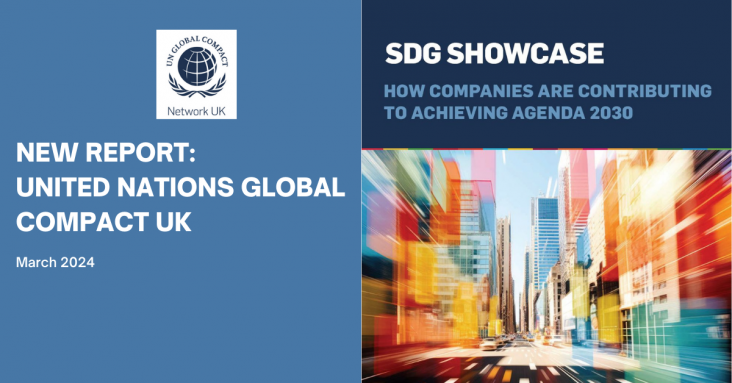This content aligns with SDG 2: Zero hunger, and SDG 13: Climate action by covering how the media communicates the challenge of feeding more people and reducing climate impact at the same time.

RELX SDG Inspiration Day 2024: Leading edge discussion on AI for sustainable development: the risks and opportunities
The tenth RELX SDG Inspiration Day - a free, online event for thought leaders, corporate representatives, students, investors, government and NGOs to explore issues, gain practical insights and be inspired to take action in support of the UN Sustainable Development Goals.

AI holds tremendous potential for advancing the United Nations Sustainable Development Goals (SDGs). AI, particularly generative AI, provides new opportunities to analyse data and trends at pace a
The study forecasts AI-based innovation's impact on SDGs in 22 countries from 2022 to 2030 using System Dynamics Modeling. In most of the 22 countries studied, AI-based innovation positively affects SDGs 1, 3, and 5. For half of the countries studied, AI-based innovation positively influences SDGs 2, 4, 6–8, 11, 13, and 16–17. AI-based innovation does not positively influence SDGs 10, 12, 14–15 for most countries studied.

In recent years, increased expectations from investors, regulators, employees, and customers have put significant pressure on companies to increase their sustainability efforts.
The Sustainable Development Goals (SDGs) are not just another sustainability framework, but the only universally agreed blueprint to turn meaningful ambition into transformational change. However, businesses report difficulties in integrating the SDGs into their core strategies and in understanding, reporting, and managing their impact on the Goals.

Launched in 2018, the WE Empower UN SDG Challenge is a first-of-its-kind global competition for women entrepreneurs who are advancing the UN Sustainable Development Goals.
Global food insecurity persists despite increased production, highlighting the need for sustainable solutions like "Smart Foods" such as buckwheat, which is nutrient-dense, climate-resilient, and rich in bioactive compounds. Leveraging buckwheat’s genetic potential and diverse applications can promote health benefits and help address future nutritional challenges.
In a bid to tackle the world’s growing demand for sustainable protein, South Korean scientists have successfully grown beef cells inside rice grains. The process involves enzyme-treating rice to support cell growth, then infusing it with bovine cells that develop into a pinkish, meat-like grain. Researchers say the hybrid food could offer a low-cost, low-emission alternative to traditional livestock farming — a potential breakthrough as nations grapple with climate pressures and food security challenges.
This perspective explores nature-based solutions that can be adopted to mitigate and adapt to soil salinization, along with their challenges and implementation limitations
This paper conducts an analysis utilizing data from 163 countries, revealing that an upsurge in global food commodity prices entails trade-offs with 13 SDGs, while exhibiting synergies with a few others.
